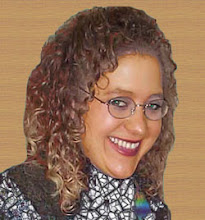If the Olympics themselves are inspirational to many across the globe, the Paralympics should be even more so. Certainly there were tragedies befalling many of the Olympic athletes in the run up to the London 2012 games - from physical injury, heart surgery, death of loved ones and even getting shot in a case of mistaken identity. For me, though, the athletes of the Paralympics are testament to the strength of the human spirit beyond anything that could have been expressed just a few weeks before.
The disabled face a slew of challenges in their everyday lives. And these are not simply once-off occurrences they can recover from. These challenges need to be faced by them day-in, day-out. To train, and compete against peers despite that is quite something. Often I reflect on the challenges that I, and many of my able-bodied colleagues, face. The Paralympics is inspirational if only to provide the context for our own challenges, and to witness a special determinism that drives people to overcome hurdles that often-times seem insurmountable at first glance.
I was glad to see that the flair had not been fully spent on the Olympics opening ceremony. Admittedly, the Danny Boyle spectacle would have been a tough act to follow. Bradley Hemmings and Jenny Sealey, the artistic directors of the Paralympics event, created a worthy start to the proceedings. Traditionally, it seemed that Paralympics played the role of the poorer brother to the main event - the ceremonies were nowhere close to being as well choreographed and spectacular. London 2012, I am pleased to say, was different. And for her Majesty, the Queen to appear at both events was special and very well-received by the audience.
The reach of the event is much wider than it has ever been. Having said that it has been rather disappointing that the likes of BBC so sparsely cover the event in comparison to their wonderful coverage of the main games. I have no doubt that the competition in the Paralympics will be as exciting and addictive as London 2012. In other countries around the world, notably the developing world - take South Africa and India as examples, the Paralympics barely feature as news unless the country wins a medal or two. Even that, it would seem, merits only a few moments in news broadcasts. Given the sad status of disability in Africa this is hardly surprising.
Perhaps this would be a good time for the Olympic committee to insist on greater coverage for Paralympics. They certainly had enough power to restrict countries from participating this year if they had no female representation on their teams. Perhaps a way of enforcing better coverage would be to better structure the rights to broadcast the main Games and the Paralympics more appropriately. One cannot help but speculate how many more people would have watched the Paralympics had BBC broadcast them as opposed to having them only on commercial-ridden channels.
"Ever since the dawn of civilisation, people have craved an understanding of the underlying order of the world. Why it is as it is and why it exists at all," said Professor Hawking.
Witnessing these challenged athletes compete gave me, for one, a sense of great admiration. It's not just about the triumph of the human spirit. Or about social inclusion, or about equality. It's about the realisation that everybody has their own lot, their own challenges, their own trials and tribulations to deal with - and success is very much about attitude, determination and the will to be the best you can be. Personally, I think the able-bodied population would get a lot more out of watching the Paralympics than the main games. Who knows, perhaps Oscar Pistorius can become the Usain Bolt of the Paralympics - a charismatic champion is exactly what the Paralympics needs now to really get the event on the map, and in every home.
As an aside, apologies for the rather irregular posts over the last year. I have been travelling and working in places in Africa with very little access to technology. My little sabbatical to Western civilisation to watch the Olympics has been the highlight of my last year. It literally was like a blessing - as though one day I visited OCI in India, looked to the stars, then buy lottery ticket online and won it! I hope to record much of my Paralympics experience and bring it back to Africa to some of the villages I've worked with. If even a few people can begin to change their attitudes toward the disabled by having witnessed their spirit and what they are able to achieve, I would be thrilled.
After November, I should be a lot more regular with my blogging as I will be working in South Africa. I have a few papers lined up to be published on women's rights and social issues around online gambling in the developing world (that will be published online on NewsView in South Africa)... it should make for interesting reading particularly given the current legislation around both these topics in these countries.
Until then, keep well - I am off to enjoy the rest of the glorious games in London!




